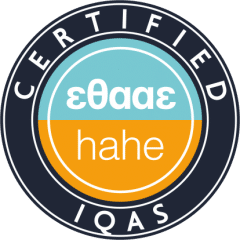Course Tutors
The theoretical part of the course focuses mainly on the basic concepts related to the design and implementation of services/applications on the Internet.
- Understanding: The main goal is to understand basic concepts related to analysis, synthesis and design of dynamic websites/services/applications using both basic and modern technologies, in collaboration with web servers and database- servers, in Web 0.
- Analysis: Students will be able to identify, study and analyze the needs of a new service/application and to identify and define its requirements correctly while setting the basic implementation
- Composition: Students will be able to synthesize-design new web services/applications / sites and implement a new Web 2.0 site/service. This will be achieved through a project by using one of the most common design/implementation technologies/platforms, e.g. Joomla!
- Evaluation: The objectives are to provide students with the ability to choose the right criteria for evaluating websites and their technologies. The course also addresses Web search techniques (lexical and semantic approach), aiming at the development of search / meta-search engines and e-commerce
The course is divided into the following sections:
- Section 1. Basic Web Concepts 1.0. The static web construction technologies are briefly presented. More specifically, reference is made to HTML and CSS. Basic knowledge of both is a necessary tool for understanding the concepts and management tools in the next
- Section 2. Basic Concepts in Web 2.0. The concept of a dynamic site through which customers of the client computers interact with the services of the server computers. Basic programming languages used on servers and clients. More specifically, reference is made to Javascript, PHP and JSP. At the same time, the basic DB management tools (MySQL – phpMyAdmin) that are at the heart of Web
2.0 services are also presented. Presentation of a complete dynamic website



